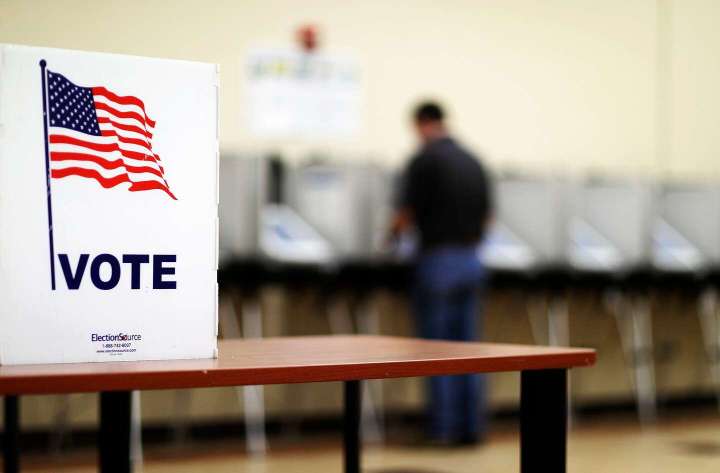If democracy is under threat in the United States, what ideological system threatens to displace it? As much as Americans admire the late Queen Elizabeth II, there is no movement for monarchy here. Fascism or communism? Well, maybe, but outside the overheated imaginations of partisans, neither has a significant social base.
Do the seeds of democracy’s destruction lie within its own defense?

How about some vaguely constituted thugocracy or autocracy? That’s more plausible, but recall that even the mob that tried to block the transfer of power in 2021 was animated by a delusion that it was saving democracy from fraud. Oligarchy? That’s always a tendency in democracies, but the rich are politically divided and probably couldn’t overpower popular participation in politics even if they wanted to.
America’s democratic structure is indeed shuddering — but it is shuddering under its own weight. The threat to democracy isn’t (for now) a usurper system, but democratic ideology itself. At least that’s one way to read a significant new study on democratic attitudes published in the American Political Science Review by the Danish academic Suthan Krishnarajan.
Talk of the “defense of democracy” in the United States evokes a conveniently sharp division between citizens who favor democracy and those who don’t. Krishnarajan takes a more subtle approach. He shows that citizens who self-consciously support democracy can simultaneously support undemocratic actions on a large scale when it suits their political interests — and not recognize the contradiction.
Follow Jason Willick‘s opinions
FollowDemocracy, of course, is a process defined by elements such as fair elections and free speech. Liberal or conservative outcomes — more or less immigration, or more or less social spending — can both emerge from the democratic process. In 2020 and 2021, Krishnarajan used a carefully constructed survey with “vignettes” designed to tease out how Americans’ views on democracy interacted with their partisanship. The result: Most people conflate the democratic process with their favored political outcomes.
Respondents “tend to delegitimize opposing views by perceiving them as undemocratic — even when they are not,” Krishnarajan found. “When confronted with a perfectly regular left-wing behavior” — such as implementing Obamacare — “48% of the right-wing citizens consider it to make the country ‘much less democratic,’ ” the paper says. “Conversely, when confronted with regular right-wing behavior” — such as repealing Obamacare — “46% of the left-wing citizens consider it to make the country ‘much less democratic.’ ”
Even as they overstated democratic transgressions by the opposing side, Americans were reluctant to identify bona fide abuses by their own side. “When leftists are confronted with undemocratic right-wing behavior” — like restricting the venues where liberal politicians can campaign — “62% of them perceive it to be highly undemocratic. When they are confronted with an identical left-wing undemocratic behavior, only 36% think so.” A similar gulf exists on the right.
This creates perverse incentives for envelope-pushing politicians. “The more unambiguously clear the undemocratic violation, the more people polarize in their perceptions of how undemocratic it is,” Krishnarajan writes. Moreover, “biases are not simply present at the poles of the political spectrum but exist even for citizens who simply lean either direction politically.”
Crucially, Krishnarajan finds in his analysis, respondents don’t see themselves as sacrificing their democratic values, even as their survey answers tell a different story. Motivated reasoning “relieves them of unwanted conclusions about the state of democracy by altering how they understand democracy in a given situation.” To the partisan mind — which is to say, most of our minds — violations of democratic norms are simply less salient when directed against a disfavored group.
Norm-breaking behavior, in other words, gets justified within a democratic frame, not outside it. That finding is consistent with how U.S. politics is practiced today: To take one example, presidents of both parties tend to claim the mantle of popular authorization when they sideline Congress and expand executive power.
If U.S. democracy is functioning poorly, the problem is not that Americans are embracing some nondemocratic system of government, or even turning away from democracy in the abstract. To the contrary, we are so ideologically invested in the purity of our democracy that much of what the other party does seems like a threat to it. And that sense of threat in turn justifies political hardball as a countermeasure — and makes citizens more tolerant of their own party’s abuses.
So the fight in America right now isn’t between democracy and non-democracy, but between two opposing visions of popular sovereignty. The concept of democracy, broadly agreed upon but fiercely contested in its particulars, never came with fixed guardrails. And the higher the perceived stakes rise, the more tempting the invitation to destroy political norms — and to rationalize their destruction as necessary for democracy.
The fact that democracy is primarily undermined not by its opponents but by its supporters could mean, as Krishnarajan writes, that the challenge is “more formidable than hitherto acknowledged.” The lack of any credible alternative in the United States shows the ongoing power of the democratic idea. But perhaps that idea has become too all-consuming if it can justify its own gradual destruction. To keep the best of their democracy, Americans might need to recover other kinds of political virtues.






